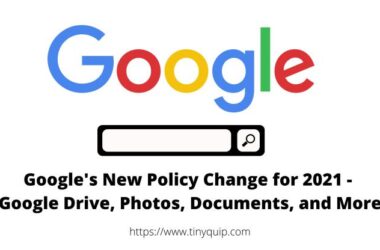Picking the right VPN service can be challenging at times, especially when they look and work the same. However, it is not about the front end; it is actually how the VPN service works in the back end. Now, I am going to make an early revelation in this blog, which is that most VPNs store and sell your data to advertisers, black market, and even eat your bandwidth. Now, before you start making any guesses about which type of VPNs do that, is it both the free tier ones or the paid ones? We have a lot of such things to discuss in detail, and this guide is all about that debate: free vs. paid VPN, which is the best option for you.
Of course, when we say “the best VPN,” it does not necessarily mean only geo-unblocking. So, if you have been using a VPN service only to watch those banned Netflix movies from the secret Netflix codes, you really need to read our guide on why and when to use a VPN service. When judging a VPN on the scale of best to most unsafe, we can run a few tests, like security, speed, testing servers, and much more, which are discussed in detail in our guide – How to Pick a Right VPN Service. Be sure to check it out.
As of now, let’s get back to the free vs. paid VPN debate and why it is worth subscribing to a reputable VPN service and not just any VPN.
What Does a VPN Do?
Of course, it is not a strange question to ask when you are picking a VPN service for your daily internet activity. There is always more than unblocking region-specific titles, as VPNs can help with a lot more of this. A VPN or a Virtual Private Network is a technology that creates a secure and private communication layer over a less secure network, such as the internet we use every day.
So, when you get a new internet connection, it is not that safely guarded. Any intermediate or expert person can tap into the network and know everything you are doing on the internet. Not just any cybercriminal but even your ISP or the government of your country can view your activities without any data masking.
VPNs create a secure channel of communication that also encrypts your data from end to end so you can use the internet with all the freedom. By switching servers, you can change your IP address to keep your identity anonymous.
Free vs. Paid VPN: Settling the Debate
When you search for a VPN on Android or App Store, you can find a bunch of options; you can easily download and use them for free, and these come with a daily bandwidth limit. While most of these are free to use, a few of them are freemium, which means you get to have a trial of the VPN before you pay for its subscription. Some of the VPNs are paid ones; you will have to subscribe to them first before you can use them on your device.
Let’s start with the Free VPNs,
1. Free VPN: All Show, No Go
Free VPNs come with a lot of advantages and disadvantages. Of course, they are quick to install on your Android devices; for iPhone, any VPN would require installing a VPN profile first, we discuss those steps in our detailed guide – How to Install a VPN profile on an iPhone or iPad.
The major advantage of using a VPN service is you get to use it for free. Some VPNs offer unmetered bandwidth, and most don’t work at all; you can just see a loading screen on your device.
The free VPNs are notoriously popular for stealing user data and bandwidth. Naturally, you agreed to it when accepting their terms and services. But what data do they collect, and what do they do with this data?
The data collected by free VPNs is traded with the advertisers, who then send you emails, show banner ads on your favorite websites, or even send you messages about their products based on your preferences and internet activities. Also, you will see these VPNs bombarding you with several ads that make it impossible for you to use the internet peacefully.
Free VPNs that steal your data not only steal your data but also your internet bandwidth. For instance, if you are using such a VPN and have it activated on your device, and there is a user from another region using the same app who wants to connect to your region, your device turns into an access point for them, which ends up eating all your bandwidth.
Also Read: VPN Tunneling: What is it and How Does it Work?
2. Paid VPNs: Freemium and Subscriptions
Free VPNs also come with a seven-day free trial subscription that allows users to use the service before buying one of their packages. You will be required to provide your credit card information and create an account to access most of these free 7-day trial subscriptions. Such VPNs are called freemium.
Paid VPNs are pretty much secure VPN services, and to be honest, not all of them are secure. In comparison to the free options, paid VPNs are good with not eating your bandwidth and slowing down your internet connection. However, some of these might still store your data and trade it with third-party advertisers, which is also why you need to be cautious as you are giving out both your personal data and your money to such services.
Also, the most common issue that these VPN-subscribed users face is not being able to unsubscribe from these VPN services, so it’s all like a scam from which it is difficult to come out.
So, how do you know if the VPN is genuine? There are a few workarounds that you can try.
For instance, you can check the terms and privacy usage of your VPN service. Most of the time, due to the law, VPN apps clearly mention storing and trading your data with third-party advertisers. So, it should be easy to determine if the VPN is going to steal your data.
Another thing you can do is check for the VPN’s credibility online and see what the other app users have to say. Mostly, you can find true thoughts on apps like Reddit, where users express their thoughts aloud. Most times, VPNs flag such comments and delete them, but you can always read deleted comments using my guide on – How to Read Deleted Reddit Comments.
My Recommendation: Paid VPN, But Which One?
There are two VPNs that impress me, not only on the features but also on how they ethically work. NordVPN and ExpressVPN are two of my picks for several reasons.
Firstly, if you want to know about them in detail, you can read my comparison guide on NordVPN vs. ExpressVPN. If you are short on time, let me just bring out some quick pointers about both of these VPNs.
From the security and privacy perspective, both of these VPN services use the AES-256 encryption standard, which is military-grade encryption and is impossible to break using a normal computer on your desk without a deciphering key. This encryption standard is end-to-end, so even if your data is stolen, it is of no use, as it is in the form of some random data.
One of the other key privacy perspectives these two VPNs offer is they bring in independent audits from third-party security firms. So, basically, there are unannounced server audits to determine if there are any privacy leaks or data storage issues, which brings more confidence for the users who wish to use these VPNs. Also, isn’t that a reliable thing?
To enhance your experience, both of these VPNs use advanced technologies such as obfuscated servers, Socks5 proxy, Double VPN, TOR over VPN, and uncompromised speed with multiple location options all over the world. In fact, you can even find server locations in most restricted areas like China and most of East Asia.
Both these VPNs can easily bypass region restrictions for your geo-streaming, and it is also true with platforms like BBC iPlayer and Netflix. So, be it while traveling or when craving to watch your favorite title from another part of the world, you can now do it seamlessly.
Of course, you don’t want to compromise on speed and pricing. So, NordVPN and ExpressVPN both offer heavy discounts on their annual plan and if you have a student ID, you can get more benefits.
For more detailed information, I suggest you look at their offers –
NordVPN

- Secure Internet
- Strict No-Logs Policy
- Use with ease
- Multiple devices
- Ultra-fast connection
- Worldwide access
- VPN servers everywhere
- P2P Servers
ExpressVPN

- 160 VPN Locations
- Split tunneling
- Kill Switch
- Best-in-class encryption
- Private DNS on each server
- Unblock Streaming websites
- Hide IP address
- No-log Policy
Frequently Asked Questions [FAQs]
A VPN, or Virtual Private Network, creates a secure and private channel over the internet, encrypting your data and masking your IP address. This is crucial for protecting your online activity from cybercriminals, ISPs, and government surveillance.
Free VPNs may not be entirely safe as they often collect and sell user data to advertisers, display intrusive ads, and can even use your bandwidth for other users. Always read the terms of service carefully.
Yes, some free VPNs use your device as an access point for other users, consuming your internet bandwidth without your explicit knowledge.
Free VPNs may offer limited security, slower internet speeds due to server overload, intrusive ads, and may even compromise your privacy by selling your data.
Paid VPNs generally offer better security, faster speeds, no ads, and a commitment to user privacy. They are more reliable for safe and uninterrupted online browsing.
Look for VPNs that clearly state their privacy policy, offer strong encryption standards, undergo independent security audits, and have positive reviews from users.
Both offer AES-256 encryption, undergo independent security audits, and provide advanced features like obfuscated servers and Double VPN. They also maintain high speeds and have a strong commitment to user privacy.
Yes, quality VPNs like NordVPN and ExpressVPN can effectively bypass geo-restrictions, allowing you to access content from Netflix, BBC iPlayer, and other streaming platforms worldwide.
While all VPNs can potentially slow down your internet due to data encryption, paid VPNs invest in high-speed servers and technologies to minimize this impact.
Most reputable VPN services offer a straightforward process for cancellation and provide a money-back guarantee. Check their website for specific instructions or contact customer support.
Before You Leave
Get Our Prime Content Delivered to your Inbox for Free!! Join the Ever-Growing Community… Right Now.
Give this article a quick share,
Wrapping up: Free vs. Paid VPN
This pretty much sums up my guide on Free vs. Paid VPNs, and of course, you should ditch using those lucrative free VPNs; they are a trap. I recommend you always read the terms and service of use, look for privacy options, and measures taken by the VPN service, such as independent audits and not storing data. Also, look for the VPN origin; if they are from EU countries with the 5-eyes law, they are bound to share any amount of data they have about you with the government. If you wish to create your own VPN, you can check our guide on How to Create a VPN Server with Raspberry Pi. It is a fun DIY project for the nerds.
For queries, you can contact us using the form or leave a comment below this guide. If you like this article, do give this a quick share on your social media handles, and do tag us. Also, join our Telegram channel, Facebook page, and Twitter to never miss a quick update.








